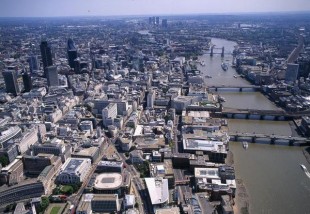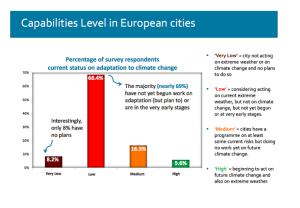Articles
LCCP shares insights on developing regional adaptation strategies at international conference
Tweet
By Tim Reeder, Regional Climate Change Programme Manager, The Environment Agency
I recently supported the LCCP’s contribution to the Delta in Times of Climate Change international conference in Rotterdam. This brought over 1200 delegates together to take forward resilience and climate change adaptation in coastal cities.
At the first plenary session, LCCP Chair Chris Rapley captivated the audience with a presentation on ‘Bridging the gap: Organising and communicating climate resilience’. In his speech Chris highlighted the challenges faced in communicating climate science effectively to policymakers and the public and the role of climate scientists in that regard, referring to the recent publication by UCL Policy Commission on the Communication of Climate Science, Time for change? Climate Science Reconsidered.
Watch the video of Chris’ speech:
>>See Chris Rapley’s presentation
The conference illustrated that there is momentum building around the world as awareness of climate impacts is growing and action is underway. It was noticeable that we in the UK having been leading in this field need to not rest on our laurels, but redouble our efforts to work with other cities to learn and share best practice.
Our TE2100 plan was cited as being best practice and the work that is going on in London to address surface water risk through Drain London is another leading example. On Thursday 25 September, I presented with LCCP Manager Juliette Daniels on the barriers and opportunities presented by adaptation to climate change at the regional level. This workshop aimed to exchange the latest and most valuable lessons learnt in that respect, and we talked alongside presenters from Rotterdam and Mekong.
>>See Tim Reeder and Juliette Daniels’ presentation
Whilst the slide below would suggest that activity is not at the scale it needs to be – there is no doubt that many cities are catching up rapidly as climate impacts are beginning to be felt more frequently right round the globe.

Pier Vellinga the Chair of the conference summed up the overall themes as:-
1. Being prepared: research and innovation, capacity building, early warning systems.
2. Mainstreaming climate change in land use urban developement, infrastructure, health care
3. Climate change, mitigation and adaptation, a trigger and guiding principle
in building more resilient societies
His closing quote well summed up the energy and determination coming through from the delegates at this very effective and inspiring conference :
It’s not technology that’s the bottleneck for adaptation, it’s having the courage to work together to test new solutions and strike out in new directions
Access all the conference’s PowerPoint presentations, videos of the plenaries and pictures here.
Leave a Reply